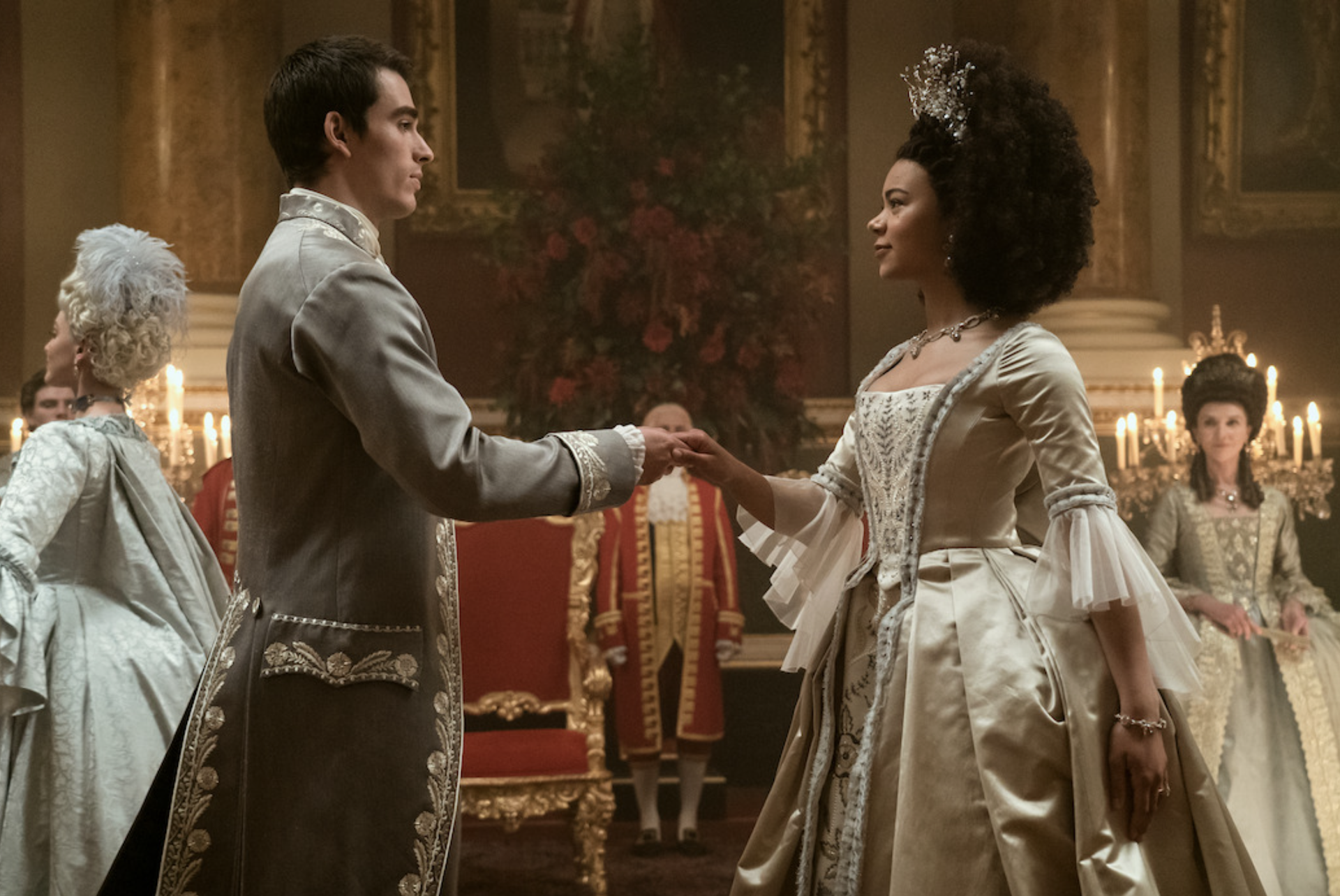Queen Charlotte lives in another universe. A never-ending whirl of razor-precision etiquette, high society balls and lavish entertainment. Days and nights are spent well away from the humdrum outside world within the walls of vast country piles or stuccoed, high-society city townhouses.
It all looks a bit of a blast, and highlights the charms of Georgian-era England. This is the country that young Princess Charlotte of Mecklenburg-Strelitz found herself transported into, where in 1761 she married the freshly-crowned King George III to become Queen. Who wouldn’t want to visit?
When tuning in to Netflix’s new series, Queen Charlotte: A Bridgerton Story, those aren’t film sets you’re looking at. They’re real places, with a heavy dose of fairytale-that-never-was vibe added in by the gloriously over-the-top production. Even in today’s New Carolean England, Charlotte’s country is still right here, down an endless driveway or half-hidden behind expertly-trimmed Ligustrum ovalifolium (that’s privet hedge, darling).
By taking a close look at the clever roster of shooting locations for both Bridgerton and Queen Charlotte, we’ve put together a wonderful itinerary for a week or more in southern England that, with the right fancy dress, will convince your friends that you’ve landed a role in your own forthcoming spinoff series. You won’t even need a car in a lot of cases.
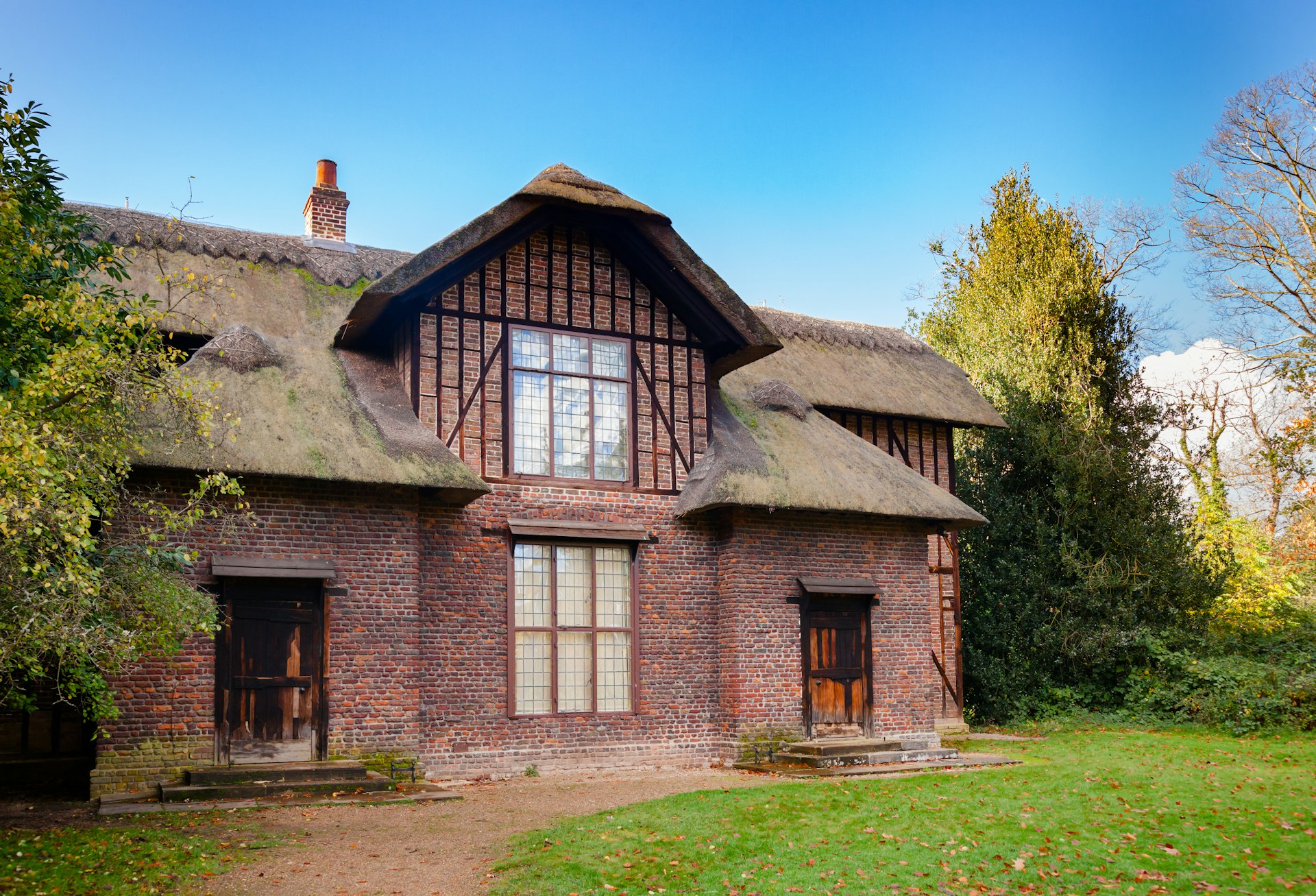
Day 1: Explore London’s southwest and see where Queen Charlotte slept
London, and the immediate surrounding area, is a Bridgerton buff’s treasure chest. Even after 250 years of restless reinvention, urban development and bomb damage, it still delivers the Georgian goodies — which is one of the reasons so much of the Bridgerton universe is here in the first place. To the southwest of the city yet within easy reach by train, Hampton Court Palace’s interiors and gardens feature throughout the series. Exploring this Tudor wonder will take most of the day. And there is plenty to see in the surrounding area — perhaps no other area of London, dominated by leafy greens like Richmond Park, quite retains what you’re probably imagining refined air to smell like.
To the north of Richmond Park you’ll find Kew Gardens, the grounds of which hold the family home of Kew Palace and the semi-secret retreat of Queen Charlotte’s Cottage. Syon House, the latter of which is the setting for the ‘Material Girl’ ball in Series 2 of Bridgerton, is on the other side of the river. The River Thames, green and gentle at this point in its journey to the sea, is lined with footpaths to help you explore. Riverside spots like Richmond, Teddington and Kew are lovely spots for an afternoon tea or a pub lunch, with put-putting river cruisers and rowers passing by.
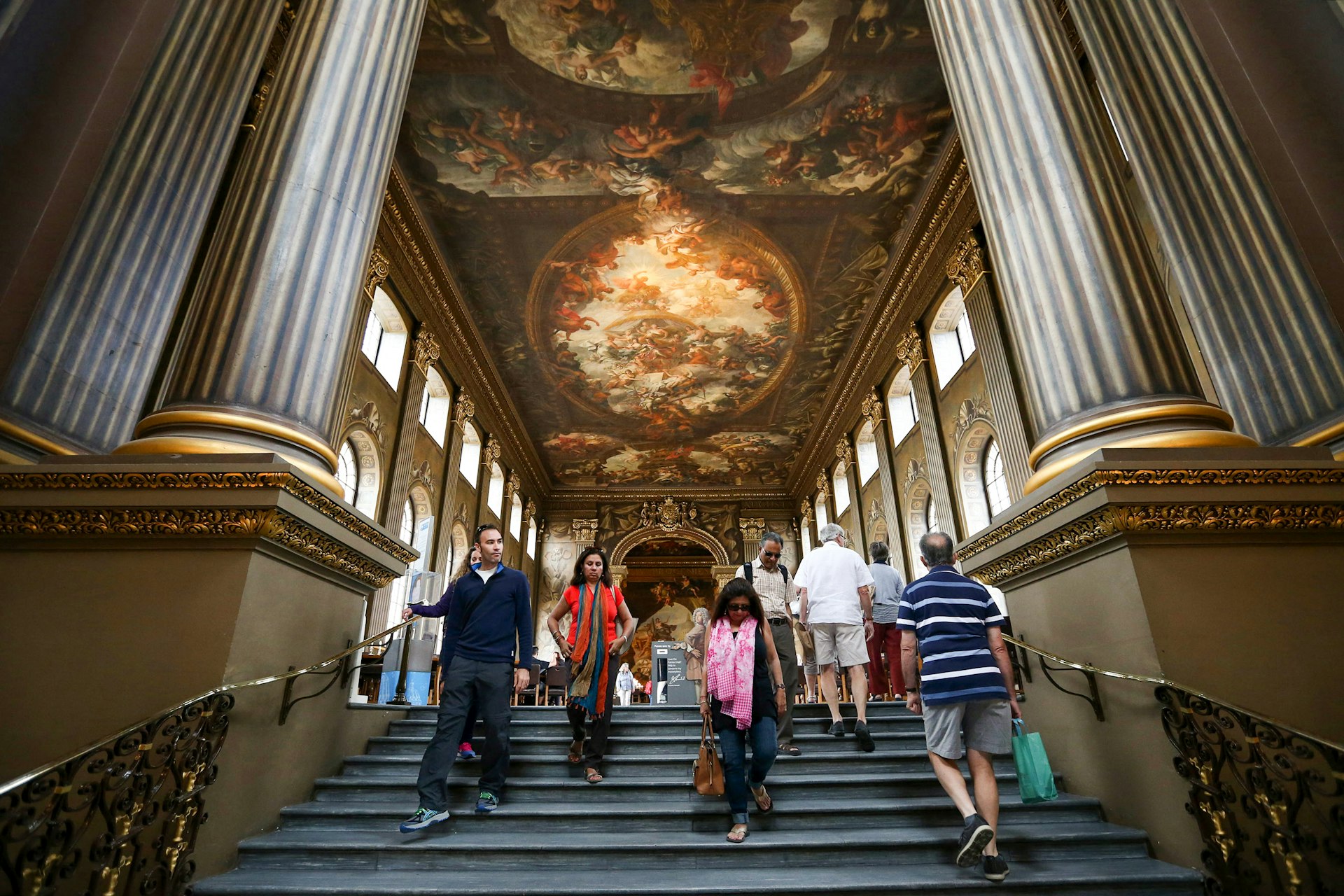
Day 2: See the historic sites hidden in plain sight
After one day wandering the west of London (ideally with a twirling white parasol), you need another in Greenwich, which is a short train ride or an exhilarating Thames Clipper to the southeast. Here you’ll find the Old Royal Naval College, which is seen not just in these shows but a huge number of film and TV shoots. Nearby, the Queen’s House, the UK’s first Classical building, was used in the show as a stand-in for the Royal College of Physicians. The colonnades and lawns of the college, built on top of Greenwich Palace where both Henry VIII and Elizabeth I were born, sit at the foot of Greenwich Park, from where there are glorious and frequently windy views over London. Where the park meets Blackheath is the Bridgerton mansion itself, the real-life Ranger’s House. It may seem odd given its prominence in the series that this house to think that this is one of the hidden highlights of London. It is home to Sandro Botticelli’s Madonna of the Pomegranate, the highlight of the Wernher Collection of artworks housed here.
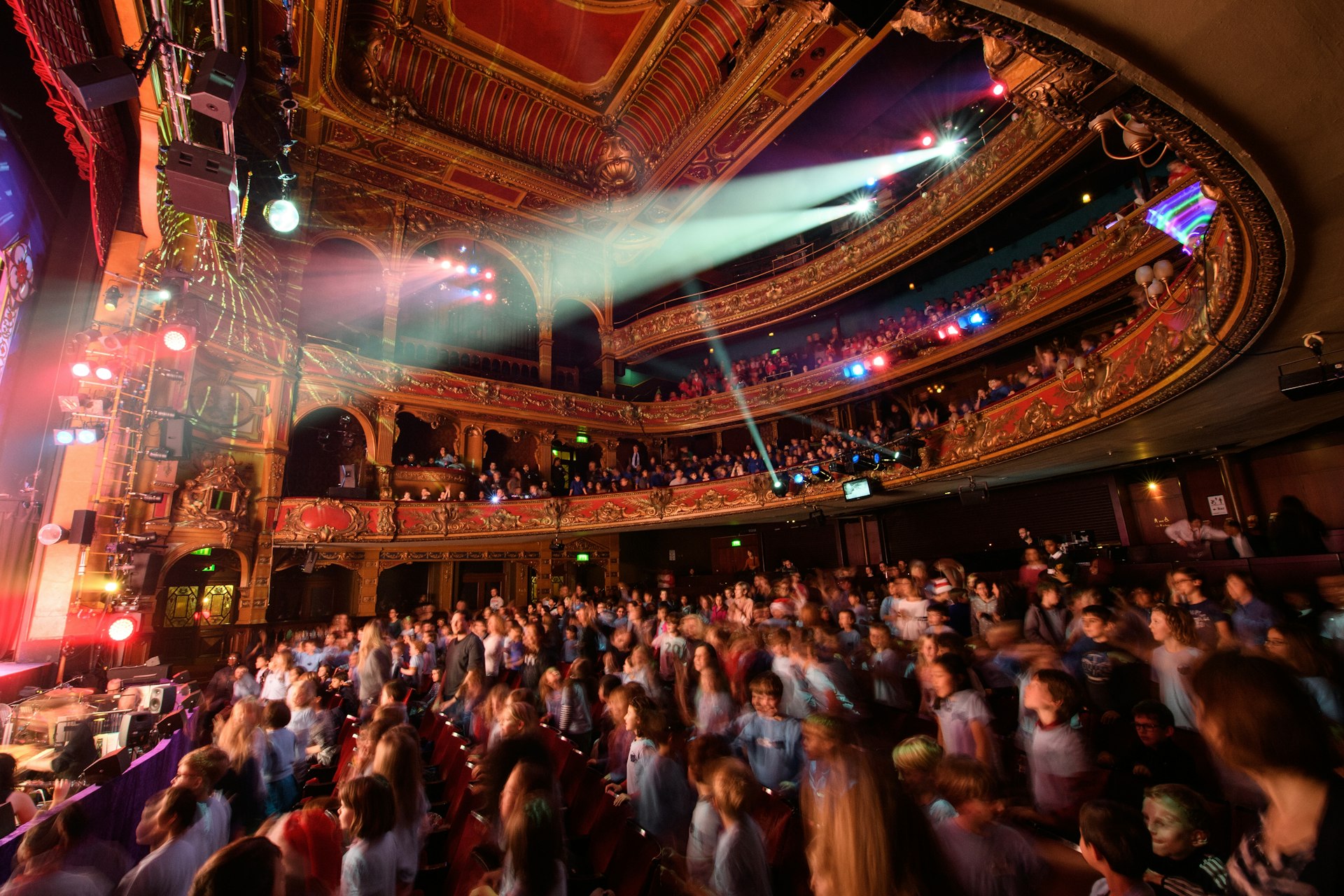
But London isn’t one vast museum of old buildings and attitudes. Following Queen Charlotte’s trail will take you to some more modern haunts. Hackney Empire, the legendary arts venue in the heart of multicultural east London, doubles as Charlotte’s Opera House. Wilton’s Music Hall, another East End venue most famous for offering the working class a good party through the years, played its own part in Bridgerton. While not quite so down-to-earth, the Wren-designed St James’ Church in Piccadilly, used for several key moments in the series, is one of the most calming spots in the otherwise hectic West End. Its light and airy baroque interior and quiet church garden invite visitors to pause and get their breath back.
Day 3: Take a journey to Bath
If you’re a Bridgerton buff, you’re probably looking for the whole big country-house-and-ball daydream, and figure this means getting out of London. And that’s true. The obvious shortcut into the whole Bridgerton universe vibe is to take the 90-minute high-speed train service from London’s Paddington Station to Bath. Paddington, where many visitors first arrive in London from Heathrow Airport, is a Victorian rather than Georgian building. However, its soaring glass-roofed curves and use of white-painted columns give an air of an older time. If you can, travel to or from here on a Friday evening in summer when Britain’s last station band performs for commuters.
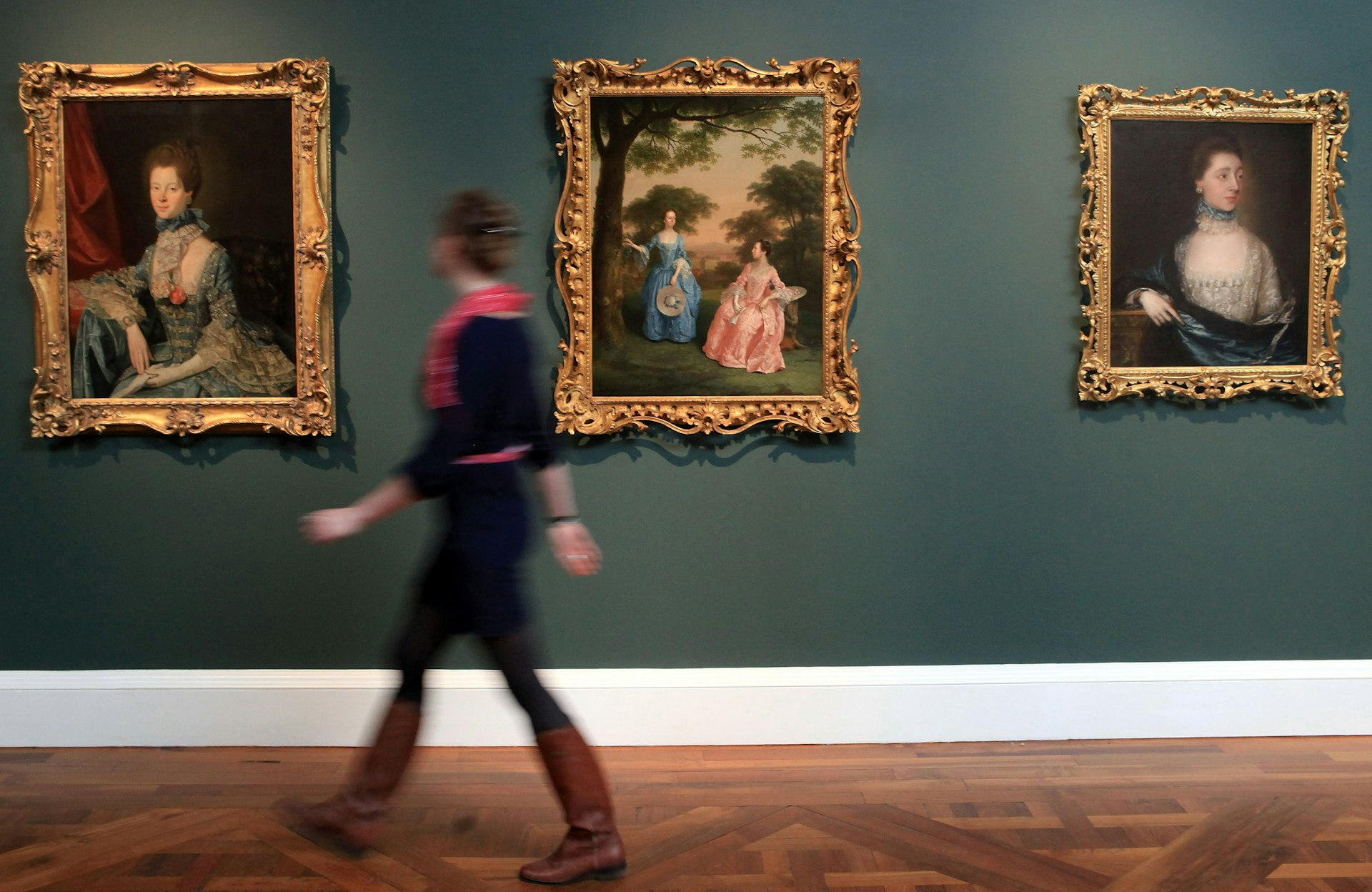
Given its famed Georgian architecture, it’s understandable why some think of Bath as a day trip from London. Bath is also undeniably lovely, with its impossibly grand Royal Crescent, Assembly Rooms — whose ballroom features in the show — and Holburne Museum (the series’ Danbury House), is one of southern England’s most visited cities. It is a stop on a day-trip circuit including Windsor Castle and Stonehenge that, once completed, is guaranteed to have travelers slumping wearily onto an Ottoman like a grand dame at the of the summer social season. To see it at its best, stay at least a night and get out early for those selfies. There are plenty of other crescents and honey-colored piles in Bath beyond the Royal Crescent that reward a meandering walk.

Day 4 (and more): day trips to Hertfordshire and Oxfordshire
Venturing away from the capital again, Dorney Court, the stunning Elizabethan family home near Windsor which stands in for the beautiful Danbury Manor in the shows, is rather bucolically open on June afternoons only. Firle Place, home to Violet Ledger, offers limited summer openings on Sundays, Mondays and Tuesdays. If these don’t work for your dates, other locations such as Hatfield House in Hertfordshire and Oxfordshire’s Blenheim Palace, have more convenient opening hours. Train and bus can take you to either of these places, and Blenheim even offers a 30% discount if you arrive by public transport. Blenheim is a good pair with nearby Oxford. There you’ll find Merton College’s chapel, which is where the on-screen royal couple are married. In real life, they wed on the same day they met at St James’ Palace in London. Merton has more of a Hogwarts than Bridgerton feel to it, so if you’ve made teenagers suffer so far on this trip this might be a bone to throw to them.
This wouldn’t be a wander around exclusive England without a few closed doors. Goldsmith’s Hall, one of the historic Livery Halls of the City of London guilds, offers four guided tours a year, all booked out for this year. Other filming locations such as Wrotham Park, just north of London in Hertfordshire and Ditton Manor in Berkshire (masquerading as Charlotte’s childhood home of Untere Schloss in Germany) hide themselves away and are not open to the public apart from for events. Try to befriend someone planning a wedding, or look elsewhere.
A few things to know before you go
It’s worth planning ahead for the bigger names in this itinerary. Book tickets in advance to skip lines, and consider bringing picnics if you’re going to be out all day to trim down costs. Many of these venues stage summer theatre, concerts and other events that can also be lovely ways to experience them, especially if the weather is kind. Whatever plans you end up putting in place, after these few days Charlotte’s world may still feel like one big illusion, but one that you’ve got just a little closer to.
